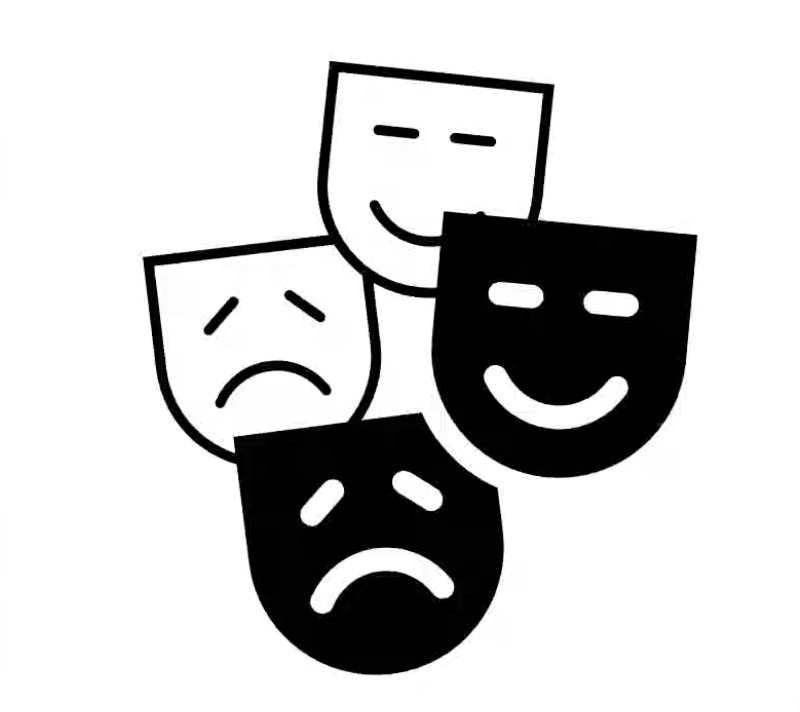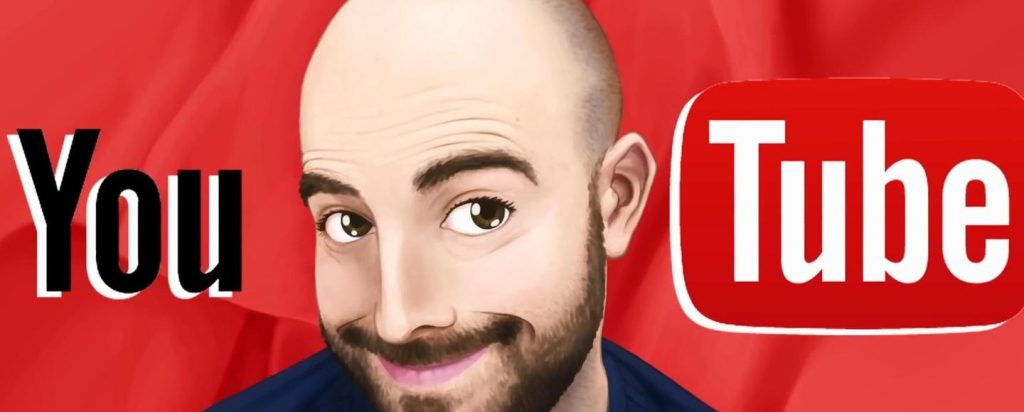“The behavior of all social identities and roles is fundamentally performance.”
(Erving Goffman, The Presentation of Self in Everyday Life, 1959)

In the digital age, virtual identities have penetrated our lives. One of the most obvious is that the boundaries between ‘front stage’ and ‘backstage’ are maximized. The network of images, information, and relationships that we create and present to represent ourselves, flexibility allows us to adjust and display our traits, interests, and values. Therefore, the performer has a high degree of autonomy.
YouTube is a virtual social space. Compared with face-to-face communication between people in real society, spontaneous discourse openness on the Internet is a more important phenomenon (Joinson, 2001). Here everyone can present an ideal self-image through carefully edited content. For example, it can allow a person who does not love to travel in life to look for beautiful scenery and photos around the world through the Internet and build himself into a backpacker who has a senior hobby and professional spirit of travel. Even if they don’t like to interact with people in life, they can make themselves social masters through social media, and become humorous, confident, and fun.


But how true are these images?


As a glossy YouTuber, Matthew Santoro has made a name for himself on YouTube by compiling Top 10 lists and “50 Amazing Facts” videos. But Matthew Santoro doesn’t like to research, and he doesn’t want to write, so where does he get his video material?
It is easy to steal other people’s knowledge.
In 2016, YouTube blogger GradeAUnderA revealed that all of Matthew Santoro’s footage was plagiarized from a website called Listverse. He cites Matthew Santoro’s video, “10 Weirdly Famous People,” which is identical to one on Listverse.
This act of stealing others’ works not only infringes the rights and interests of the originator but also violates professional ethics. The Internet is still essentially a democratic medium, and as people create new identities on social networks, they also lose their real identities. (Haziq, 2019)
Each of us has to play a variety of roles at this stage of life, but this does not mean that we have to deal with various problems in life deceptively and hypocritically. The ego is not hidden, and sometimes people are “people” rather than performers(Haziq, 2019).
In order to present the most wonderful performance on the stage of life, sincerity is exactly the best acting skill.
References:
- Goffman, Erving. (1959) “The presentation of self in everyday life“. Knopf Doubleday Publishing Group.
- GradeAUnderA uncovered Matthew Santoro’s video:https://youtu.be/6AKPp0tZhjY?si=7iRhVR-Tglse_K9M (Accessed: 4 November 2024)
- GradeAUnderA的wikipedia: https://en.wikipedia.org/wiki/Matthew_Santoro(Accessed: 4 November 2024)
- Haziq, S (2019) Putting the best digital self forward in the age of Social Media. Available at: https://medium.com/@haziqsabreen25/putting-the-best-digital-self-forward-in-the-age-of-social-media-d3dbec422b73 (Accessed: 4 November 2024)
- JOINSON, A.N., 2001. Knowing Me, Knowing You: Reciprocal Self-Disclosure in Internet-Based Surveys. CYBERPSYCHOLOGY & BEHAVIOR, 4(5).


Hi~ After reading your blog, I think your perspective is very interesting 😁 starting from the question of the authenticity of fictional images in the digital world. You chose to use Matthew Santoro’s plagiarism as a case. Although I did not know this blogger before, there are many similar things, and such plagiarism or embezzlement cases are very typical. For example, in China, there was a popular travel blogger named itsRae, whose videos were very good-looking. It was a blogger who graduated from New York University and had tens of millions of fans. Before it was exposed that she carried some video clips of foreign bloggers into her travel videos, I had been taking her as my role model. So I thought about her when I saw your case. Also as you said at the end, sincerity is exactly the best acting, which is a good point. In the network world, people should keep their sincere heart. Finally, I have a small suggestion, although you mentioned the authenticity of fictional images, but in fact, there is a further discussion about how to determine the authenticity of virtual identities. But it’s also possible that your word limit doesn’t stretch you too far.
I am thrilled to receive your reply ~ Yes, I find your advice very helpful; I always feel a bit short of words when I am ready to extend, but I think your advice is crucial for this topic blog; I will try to balance it next time. Thank you